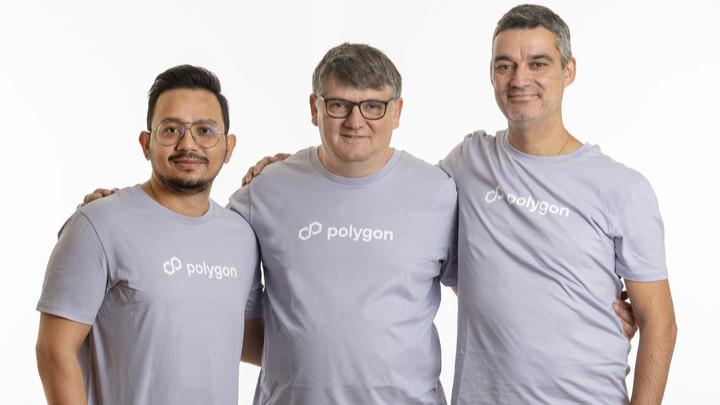
MATIC, which produced market-beating returns during the 2021 bull market, has fallen out of favor in the past 12 months, significantly underperforming BTC, ETH and rival layer-2 coins ARB, OPT, IMX, and SKL.
Polygon zkEVM and other zero-knowledge rollups post fraud proofs far more frequently and, therefore, would not see the benefits of lower transaction data costs following Ethereum’s Dencun upgrade, Arca’s Katie Talati said.
MATIC was overvalued at the start of the ongoing crypto bull run, and SwissOne Capital said other tokens are playing catchup.
The native token of the Polygon ecosystem (MATIC), a market darling during the 2021 bull run, has fallen out of favor with crypto traders.
The cryptocurrency has declined over 32% in 12 months, significantly underperforming rival layer-2 coins like IMX, OP and SKL, which have risen 216%, 46% and 50%, respectively, according to CoinDesk Indices. Arbitrum’s ARB, which has existed for less than a year, has seen more significant gains than MATIC in six months.
Bitcoin (BTC), the largest cryptocurrency by market value, has more than doubled to $51,700 in one year, and the CoinDesk 20 Index, the broader market gauge, has risen 70%.
MATIC’s dismal performance is in contrast to 2021, when the token was on a tear, producing market-beating triple-digit price gains even during the corrective phases of the bull run.
Polygon’s ecosystem includes Polygon PoS and Polygon zkEVM. The former uses the Plasma framework with a Proof-of-Stake (PoS) consensus mechanism to run a side chain alongside the ethereum mainnet. The zkEVM employs ZK-rollup technology, bundling and processing transactions outside the Ethereum main chain. Arbitrum and Optimism are other popular Ethereum scaling solutions using rollup technology.
The lack of investor interest in the token likely stems from a couple of reasons, including the way Polygon zkEVM ensures the validity of transactions, which puts it at a disadvantage to Optimism and Arbitrum when it comes to benefitting from Ethereum’s impending Dencun upgrade, according to Katie Talati, director of research at digital-asset management firm Arca.
The Dencun effect
Ethereum’s Dencun upgrade, slated for March 12, will introduce a new type of transaction called a blob, attaching large, fixed-sized data chunks to a regular transaction (imagine side carts on a motorcycle). Unlike call data or the memory permanently used to store transaction details, blob-carrying transactions only include a reference hash to the blob’s data stored off-chain and become inaccessible after three weeks or so.
In other words, blobs will reduce transaction costs and boost efficiency by delivering large data packets to recipients without congesting the main net.
The upgrade is particularly favorable for layer-2 scaling solutions like Arbitrum, Optimism, and Polygon zkEVM that use the rollup technology. Rollups bundle transactions together, process them off-chain and then submit the data to the Ethereum main chain for verification. The main chain, however, often faces congestion, which raises the cost of submitting data to the main chain.
After the upgrade, rollups could store their transaction data using blobs, freeing up space on the mainnet and processing more transactions at a lesser cost.
That said, Polygon zkEVM functions on the principle of “guilty until found innocent.” The rollup operators must provide proof of validity to finalize transactions on Ethereum. This resource-intensive task will continue adding to the overall transaction cost after the Dencun upgrade.
On the other hand, Optimistic rollups operate on the “innocent until proven” principle and must produce a fraud-proof flag only when the transaction is challenged. Thus, they stand to benefit from the expected decline in transaction costs following the Dencun upgrade.
“The upcoming Ethereum Dencun upgrade will decrease costs for Layer -2s to post data back to the Ethereum mainnet. Although Polygon will benefit from the upgrade, other L2s like Arbitrum and Optimism, which use optimistic rollups, will see more significant cost reductions, which has caused these L2s to rally,” Talati told CoinDesk in an interview.
“Most of the cost for optimistic rollups comes from posting transaction data back to Ethereum (which is what Dencun will reduce), but they hardly post fraud proofs. On the other hand, Zk rollups post fraud proofs far more frequently and, therefore, would not see the benefits of lower transaction data costs,” Talati explained.
Former Polygon President Ryan Wyatt’s decision to move to Optimism could be another reason for the lack of a notable uptrend in MATIC.
“The second reason for the underperformance is that Ryan Wyatt, the former president of Polygon, left last year to join as the Head of Business Development for Optimism. Many believe that Wyatt was responsible for Polygon’s big partnerships, and his exit has been a considerable blow to Polygon’s growth efforts,” Talati said.
Arbitrum, a go-to blockchain for traders
Data tracked by DefiLama shows that Arbitrum is the fourth-largest chain, with a 24-hour trading volume of $420 million. Polygon PoS ranks 6th, with a trading volume of $179 million, followed by Optimism’s $133 million.
Arbitrum is also the leading rollup, with $3 billion worth of assets locked in its decentralized finance protocols. Optimism is the second largest, with $884 million, while Polygon ZkEVM ranks 12th, with total value locked at $14.7 million.
“The toughest competitor to MATIC is Arbitrum (ARB), and unfortunately for MATIC, Arbitrum is the go-to blockchain for traders,” Kenny Hearn, chief investment officer at SwissOne Capital, said in an email, adding that Arbitrum is leading the surge in DeFi trading volumes.
According to Hearn, MATIC was overvalued at the start of the ongoing crypto market uptrend, and other layer-2 coins are playing catchup.
“Looking into the numbers, one can easily find the relative valuations stacking up. The top 10 apps’ TVL on each chain totals ARB $1.9bn, MATIC $800mn. Then, comparing their Fully-Diluted Valuations (FDV) of $20bn and $10bn, respectively, the relative valuations make more sense,” Hearn noted.
“When comparing tokenomics, both ARB and OPT are still rewarding stakers though native token unlocks, and like it or not, it can add to reducing token supply on exchanges while rewarding Pool/TVL contributors,” Kenny added.
